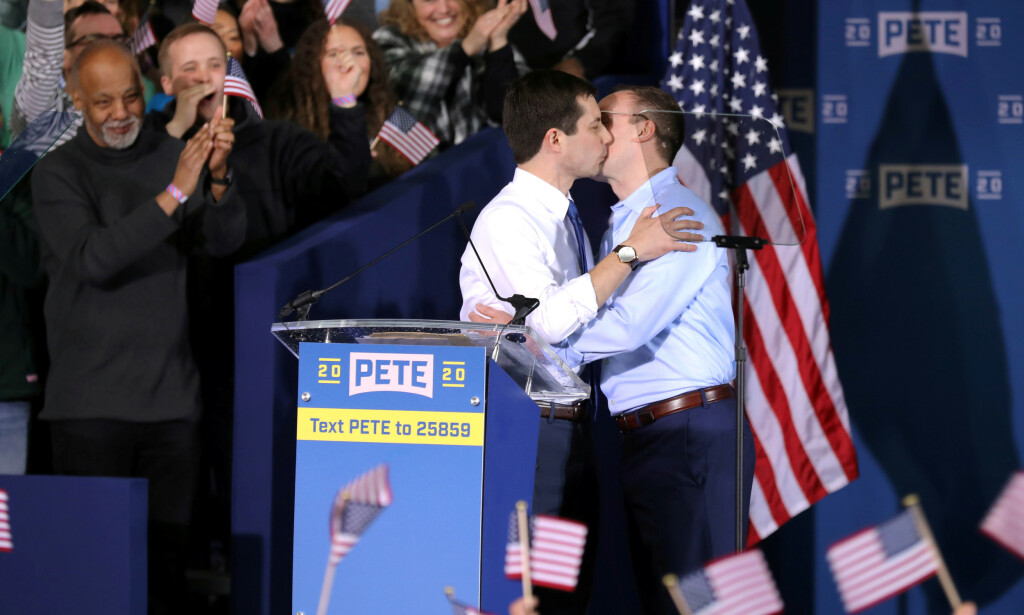
Mayor Pete could be the youngest president yet (37).
You can just as well begin practicing the first name as well as the last. A growing number of people think Pete Buttigieg can become the youngest American president in history.
It is of course still much too early in the race, but after the shocking election results of 2016, Americans are bracing themselves for anything in 2020.
Never has there been greater diversity among the candidates competing for the Democratic nomination; never have there been more women and ethnic minorities. Some do not even preclude the possibility that a 37-year-old gay mayor from a small town in the Midwest can become president. Buttigieg has, in the space of a short time, gone from being nearly unknown to becoming a media darling and a Democratic candidate to take seriously, if we should believe opinion polls and impressive campaign support. The way in which he captivates new voters has been compared to Barack Obama’s entrance on the national scene.
He has been proclaimed the first millennial candidate, someone who represents the sought-after new generation of voters who were children and youths around the turn of the millennium, and he uses his age for all it is worth. His favorite number is 2054. That is the year when he will be as old as the sitting president.
It was in fact Obama who first set the national spotlight on the young Democrat in an interview with The New Yorker just after the election in 2016. The mood in the White House was bleak, according to the journalist who asked the outgoing president who would save the Democrats now. Obama rattled off large parts of the old gang who have already signed up for the election in 2020, and then he mentioned an unknown name. That is, he did not say the name, but called him only the “mayor of South Bend,” the fourth largest city in Indiana.
Obama is not the only one who struggles with the unusual surname. It is so demanding that Buttigieg himself makes a point of explaining the pronunciation in his Twitter bio: BOOT-edge-edge (say it fast). In South Bend they just call him “Mayor Pete.” The city elected him back in 2011, when he was a mere 29 years old. Classmates in high school detected his talent even earlier, writing under his yearbook picture “most likely to be president of the U.S.”
Despite his youth, despite the fact that he is married to a man, despite the seven foreign languages he speaks − one of them Norwegian, because he is a big fan of Erlend Loe’s books − Buttigieg is actually a classic Democratic Party candidate. He is the natural heir to Bill Clinton and Obama, two of the most popular presidents in the party’s history; a super-smart, highly educated and well-read man who likes to analyze, ponder and explain, and who appeals because he represents change.
Obama in his time muttered that Clinton, sure, had been a passable president, but he had not managed to break the Ronald Reagan consensus in American politics, with the neoliberal faith in deregulation, tax cuts and weakening of labor rights as the recipe for growth. Today, Buttigieg says more or less the same about Obama. He thinks that he himself will finally succeed in breaking with the consensus that has reigned in Washington for the past 40 years, the policy of growth that has led to greater privileges for the wealthy and fewer opportunities for the rest of the population, and that has prevented politicians from tackling the greatest challenge of our time, the climate question.
Younger generations must have the opportunity to stake out the course for the next 40 years with new ideas and perspectives. The post-war baby boomers have done more than enough. It is time that they yield the floor.
Mayor Pete is the kind of politician that Democratic voters from all corners of the party have a taste for and who is difficult to categorize. Without putting too much emphasis on it, I see that my American friends who supported Bernie Sanders and hated Hillary Clinton in the last election have switched over to Mayor Pete with great enthusiasm. At the same time, he is popular among the conservative voters in his home state. He is, furthermore, personally Christian and says that those who have a problem with his sexuality can take it up with the Creator above. He plays classical piano and served in Afghanistan.
He himself believes that politicians underestimate voters’ motivation at the ballot box. They are not so rigid and predetermined as many would believe, he argues, and points out that the same people who elected him mayor presumably have also voted for Obama, Mike Pence and Donald Trump in past years. With the right candidate, they can change again.
It will be a strange sight if the two potential opponents face up against each other in the debates. One sends an articulate greeting in fluent French to Paris after the fire at Notre Dame; the other is scarcely fluent in his mother tongue. One’s favorite book is “Ulysses,” considered one of world literature’s most complicated works. The other has presumably never read a book, not even his own.
And then there is the name. Will Trump ever get it right?

Leave a Reply
You must be logged in to post a comment.